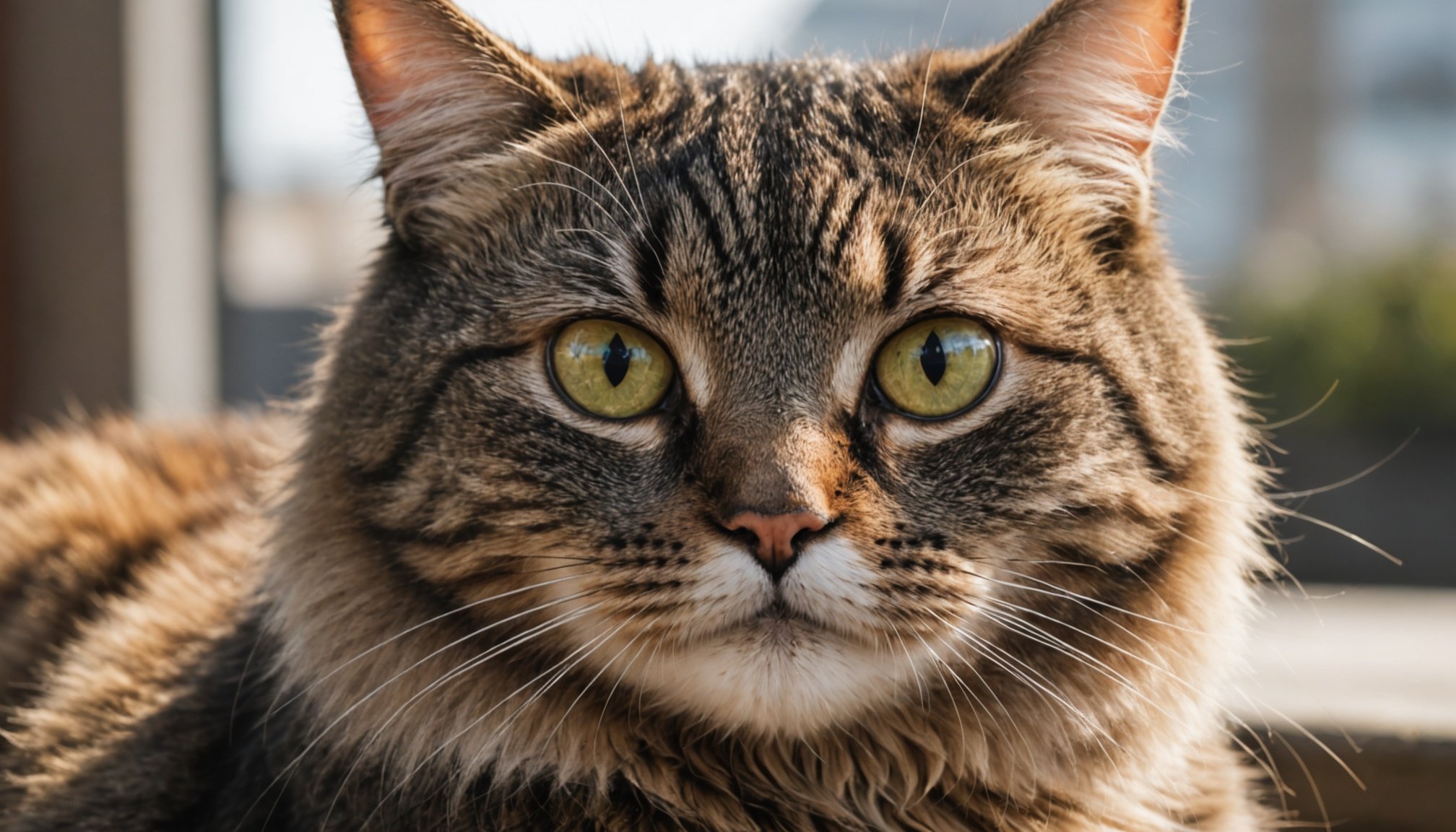Caring for senior cats requires a deeper understanding of their unique needs and challenges. As cats age, they undergo various physical and behavioral changes that can impact their overall health and well-being. The transition from a youthful feline to a mature companion is often marked by numerous adjustments in care, feeding, and lifestyle. This article aims to uncover the specific challenges faced by older cats and provide practical solutions to help you ensure a happy and fulfilling life for your furry friend. Understanding these aspects will not only improve their quality of life but also strengthen your bond with them as they navigate their golden years.
Understanding the Health Changes in Older Cats
As your cat ages, their body goes through significant changes that can affect their health. One of the first things you may notice is a decrease in their activity level. Senior cats often become less playful and may prefer to lounge around instead of engaging in vigorous play. This change can lead to weight gain, which in turn can contribute to other health issues such as diabetes and arthritis.
Additional reading : Key considerations for welcoming an fiv+ cat: building a loving and secure home
Moreover, as cats reach their senior years, they may develop chronic conditions like kidney disease, hyperthyroidism, and dental problems. These ailments can manifest through various symptoms, such as increased thirst, appetite changes, and poor grooming habits. Regular check-ups with your veterinarian become crucial at this stage. They can help identify these changes early and set up a treatment plan tailored to your cat’s age and specific health challenges.
It’s also important to monitor your cat’s litter box habits. Changes in litter box behavior—such as urinating outside the box or straining to urinate—can indicate underlying health issues, including urinary tract infections and potential kidney issues. If you notice any such changes, consulting with your veterinarian is essential for prompt diagnosis and treatment.
Have you seen this : How can I help my cat cope with changes in routine or environment, such as moving?
Incorporating a diet specifically formulated for senior cats can support their health too. These diets are often lower in calories and higher in essential nutrients that help maintain weight and improve overall wellness.
In summary, being proactive about your aging cat’s health can greatly enhance their quality of life. By staying vigilant about their physical changes and working closely with your veterinarian, you can help your fluffy companion navigate the challenges of aging.
Adapting Diet for Senior Cats
Dietary needs change significantly as your cat ages. Senior cats require a different nutritional profile compared to their younger counterparts. Their metabolism slows down, and they may not need as many calories as they once did. However, it’s vital not to skimp on the nutrients they need to stay healthy.
A well-balanced diet for older cats should include high-quality protein, as muscle mass naturally decreases with age. Look for cat foods rich in protein but low in carbohydrates to help maintain their body condition. Additionally, senior cats often benefit from increased fiber in their diets, which aids digestion and can help prevent constipation, a common issue in older felines.
Hydration is another critical factor in the dietary care of older cats. Many senior cats may develop kidney issues, making it essential to ensure they drink plenty of water. Consider incorporating wet food into their diet, as it contains more moisture than dry kibble. This adjustment can help keep them hydrated and support their kidney function.
When selecting a cat food, always look for high-quality ingredients and avoid fillers and artificial preservatives. Reading labels can help you make more informed choices. If your cat has specific health concerns, such as hyperthyroidism or joint issues, consult your veterinarian for dietary recommendations that can help manage these conditions more effectively.
In conclusion, adapting your cat’s diet as they age is crucial for maintaining their health. By providing balanced nutrition and ensuring proper hydration, you can help your older feline companion stay comfortable and vibrant in their senior years.
Behavioral Changes in Aging Cats
As your cat grows older, you might observe shifts in their behavior. These changes can be attributed to various factors, including physical discomfort due to aging or altered cognitive functions. Understanding these changes is vital for providing appropriate care and support.
One common behavioral change in older cats is increased vocalization. You may find your cat meowing more frequently or loudly. This behavior can stem from confusion or disorientation, especially if they are experiencing cognitive decline. Providing a consistent routine can help ease their anxiety and create a sense of security.
Additionally, some senior cats may become less social. They might retreat to their favorite spots and prefer solitude over interaction. This behavior can be challenging for owners who cherish their cat’s affection. It’s essential to respect their space while also offering gentle opportunities for interaction, such as brushing or quiet time together.
Moreover, litter box issues can arise due to declining health or mobility. Your cat may find it challenging to access the litter box, leading to accidents. To accommodate their needs, consider providing low-entry litter boxes or placing multiple boxes around your home to make it easier for them to reach.
Finally, as they age, some cats may exhibit signs of anxiety or stress, especially when faced with changes in their environment or routine. Utilizing calming products, such as pheromone diffusers or anxiety-reducing treats, can help alleviate their stress levels and promote a more relaxed atmosphere.
In summary, being attuned to your cat’s behavioral changes is crucial in addressing their needs. By offering understanding and adapting your approach, you can help your older feline navigate their changing world with grace and comfort.
Preventive Care for Senior Cats
Preventive care is paramount in ensuring the longevity and quality of life for senior cats. Regular veterinary check-ups are vital for monitoring your cat’s health and catching any potential issues early. These visits should occur at least twice a year, as older cats are more susceptible to diseases that can progress rapidly.
During these visits, your veterinarian will likely conduct comprehensive examinations, including blood tests, urinalysis, and dental evaluations. These tests can provide insight into your cat’s overall well-being and help detect problems such as kidney disease, diabetes, and dental disease before they become severe.
Another aspect of preventive care is keeping your cat up to date on vaccinations and parasite control. Older cats may have weaker immune systems, making them more susceptible to illnesses. Regular vaccinations and preventive treatments for fleas, ticks, and worms are essential to keeping your pet healthy.
In addition, dental health plays a crucial role in your older cat’s overall health. Dental disease can lead to pain, infection, and even systemic health issues. Regular dental cleanings and at-home dental care, such as brushing your cat’s teeth or providing dental treats, can help maintain their oral hygiene.
Finally, watching for any changes in your cat’s behavior, appetite, or litter box habits can be an early warning sign of health issues. Being proactive about your cat’s health will allow you to address any concerns promptly and support your furry friend as they age gracefully.
In conclusion, preventive care is an essential component of caring for senior cats. By maintaining regular veterinary visits and being vigilant about their health, you can help ensure that your older feline companion enjoys a long, happy, and healthy life.
Creating a Comfortable Environment for Senior Cats
Creating a comfortable living space for your senior cat is crucial for their well-being. As cats age, they may develop arthritis or other joint issues that can make it difficult for them to navigate their environment. To promote their comfort, consider making specific adjustments to your home.
One of the first changes you can implement is to provide soft bedding in quiet, low-traffic areas. Older cats often appreciate a cozy spot where they can retreat and rest undisturbed. Ensure their bed is easy to access and provides adequate support for their joints.
Furthermore, placing ramps or steps can help your cat reach their favorite spots without straining themselves. If your cat enjoys lounging on furniture or windowsills, providing these aids can make a significant difference in their ability to navigate their environment comfortably.
It’s also essential to keep their litter box accessible. As mentioned earlier, consider using low-entry litter boxes and placing them in convenient locations. Regularly cleaning the litter box to prevent odors and ensuring your cat has a pleasant experience can influence their willingness to use it.
Additionally, consider the lighting in your home. Older cats may have declining eyesight, so providing adequate lighting can help them feel more secure as they move around. Avoiding clutter and ensuring clear pathways can also help prevent accidents or falls.
In summary, by making your home more accommodating for your senior cat, you can significantly enhance their quality of life. Thoughtful adjustments to their environment can help them live comfortably as they age, ensuring they feel safe and cherished in their home.
Caring for senior cats presents unique challenges, but with the right knowledge and approach, you can address their specific needs effectively. By understanding the health changes that come with aging, adapting their diet, and being attentive to behavioral shifts, you can ensure your furry friend remains happy and healthy.
Preventive care and creating a comfortable environment are also critical in enhancing your cat’s quality of life. Regular veterinary visits, a tailored diet, and an accommodating home will help your cat thrive in their later years. Ultimately, being proactive and attentive will allow you to enjoy precious moments with your aging feline companion while ensuring their well-being and happiness.











